The Latest: Donald Trump reinstates many sanctions on Iran
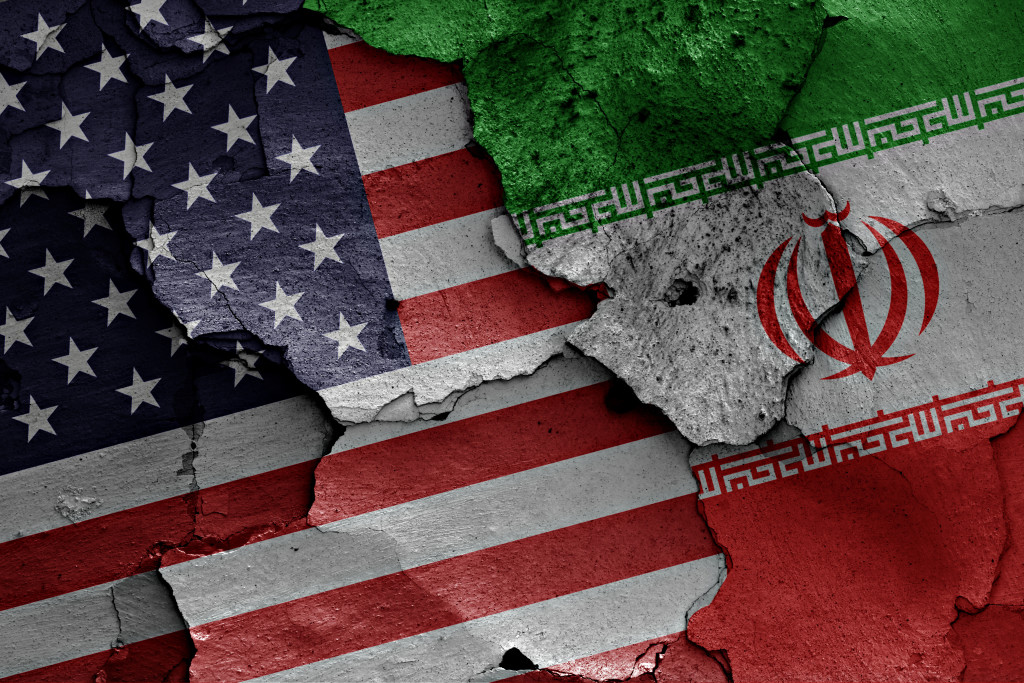
The Latest on U.S. sanctions on Iran (all times local): 11:05 a.m. President Donald Trump is signing an executive order reimposing many sanctions on Iran, three months after pulling out of the Iran nuclear deal. He says the U.S. policy is to levy “maximum economic pressure” on the country. In a statement Monday, Trump restated his opinion that the 2015 international accord to freeze Iran’s nuclear program in return for lifting sanctions was a “horrible, one-sided deal.” He says it left the Iranian government flush with cash to use to fuel conflict in the Middle East. Trump says the U.S. is urging all nations “to make clear that the Iranian regime faces a choice: either change its threatening, destabilizing behavior and reintegrate with the global economy, or continue down a path of economic isolation.” Trump warned that those that don’t wind down their ties to the Iranian economy “risk severe consequences” under the reimposed sanctions. 10:30 a.m. A senior administration official says the United States is “not particularly concerned” by EU efforts to protect European firms from the re-imposition of sanctions on Iran. The official was not authorized to discuss the matter by name and spoke Monday on condition of anonymity. The European Union issued a “blocking statute” Monday to protect European businesses from the impact of sanctions set to return Monday at midnight. The official says the U.S. will use the sanctions aggressively and cited Iran’s severe economic downturn this year as evidence the sanctions would prove to be effective despite opposition from the EU, China and Russia. 7:35 a.m. European foreign ministers say they “deeply regret” the re-imposition of U.S. sanctions on Iran. A statement Monday by European Union foreign policy chief Federica Mogherini and foreign ministers of France, Germany and the United Kingdom insisted that the 2015 Iran nuclear deal “is working and delivering on its goal” of limiting Iran’s nuclear program. President Donald Trump withdrew the U.S. from the deal, which had lifted international sanctions in exchange for Iran agreeing to restrictions on its nuclear program. U.N. inspectors said Iran was complying with the deal, but Trump argued that it didn’t do enough. But the European ministers said the Iran deal is “crucial for the security of Europe, the region and the entire world.” The first set of reinstated U.S. sanctions goes into effect Monday. Those target Iran’s automotive sector as well as gold and other metals. 12:31 a.m. Secretary of State Mike Pompeo says the renewed sanctions against Iran are an important pillar in U.S. policy toward the Tehran government. Pompeo says the sanctions will be rigorously enforced and remain in place until the Iranian government radically changes course. Those sanctions go back in place on Monday. Pompeo told reporters on his way home from a three-nation trip to South East Asia that the Trump administration is open to looking beyond sanctions but adds that would “require enormous change” from Tehran. He said President Donald Trump is intent on getting Iran to “behave like a normal country.” U.S. sanctions had been eased by the Obama administration under the terms of the landmark 2015 Iran nuclear deal. Trump decided in May to withdraw from the accord. Republished with the permission of the Associated Press.
Donald Trump plans emergency aid to farmers affected by his tariffs
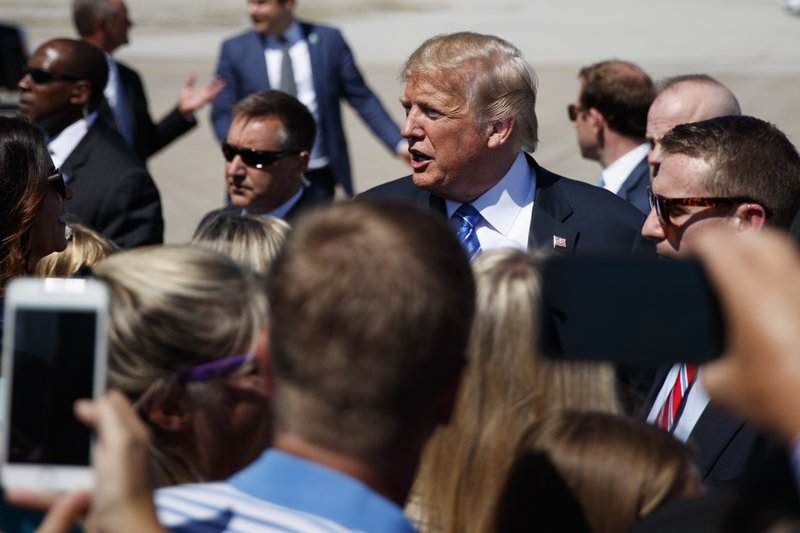
The U.S. readied a plan Tuesday to send billions in emergency aid to farmers who have been hurt by President Donald Trump’s trade disputes with China and other American trading partners. The Agriculture Department was expected to announce the proposal that would include direct assistance and other temporary relief for farmers, according to two people briefed on the plan, who were not authorized to speak on the record. The plan comes as Trump speaks at the Veterans of Foreign Wars national convention in Kansas City in the heart of the nation’s farm country. Trump declared earlier Tuesday that “Tariffs are the greatest!” and threatened to impose additional penalties on U.S. trading partners as he prepared for negotiations with European officials at the White House. Sen. John Hoeven, R-N.D., said the funding may need to be approved by Congress and the aid would be temporary. “The administration is trying to negotiate better trade deals,” he said. “In the near term is there some relief we can look at? Well, we’ll see.” But the plan magnified objections among many Republicans that the tariffs amount to taxes on American consumers. House Speaker Paul Ryan of Wisconsin said lawmakers are making the case to Trump that tariffs are “not the way to go.” Sen. Ben Sasse, R-Neb., said the plan would spend billions on “gold crutches.” “America’s farmers don’t want to be paid to lose — they want to win by feeding the world,” he said. “This administration’s tariffs and bailouts aren’t going to make America great again, they’re just going to make it 1929 again.” The Trump administration has slapped tariffs on $34 billion in Chinese goods in a dispute over Beijing’s high-tech industrial policies. China has retaliated with duties on soybeans and pork, affecting Midwest farmers in a region of the country that supported the president in his 2016 campaign. Trump has threatened to place penalty taxes on up to $500 billion in products imported from China, a move that would dramatically ratchet up the stakes in the trade dispute involving the globe’s biggest economies. Before departing for Kansas City, Trump tweeted that U.S. trade partners need to either negotiate a “fair deal, or it gets hit with Tariffs. It’s as simple as that.” The president has engaged in hard-line trading negotiations with China, Canada and European nations, seeking to renegotiate agreements he says have undermined the nation’s manufacturing base and led to a wave of job losses in recent decades. The imposition of punishing tariffs on imported goods has been a favored tactic by Trump, but it has prompted U.S. partners to retaliate, creating risks for the economy. Trump has placed tariffs on imported steel and aluminum, saying they pose a threat to U.S. national security, an argument that allies such as the European Union and Canada reject. He has also threatened to slap tariffs on imported cars, trucks and auto parts, potentially targeting imports that last year totaled $335 billion. During a Monday event at the White House featuring American-made goods, Trump displayed a green hat that read, “Make Our Farmers Great Again.” The president is meeting with European Commission President Jean-Claude Juncker on Wednesday. The U.S. and European allies have been at odds over the president’s tariffs on steel imports and are meeting as the trade dispute threatens to spread to automobile production. Republished with the permission of the Associated Press.
In tit-for-tat, Donald Trump threatens more tariffs against China
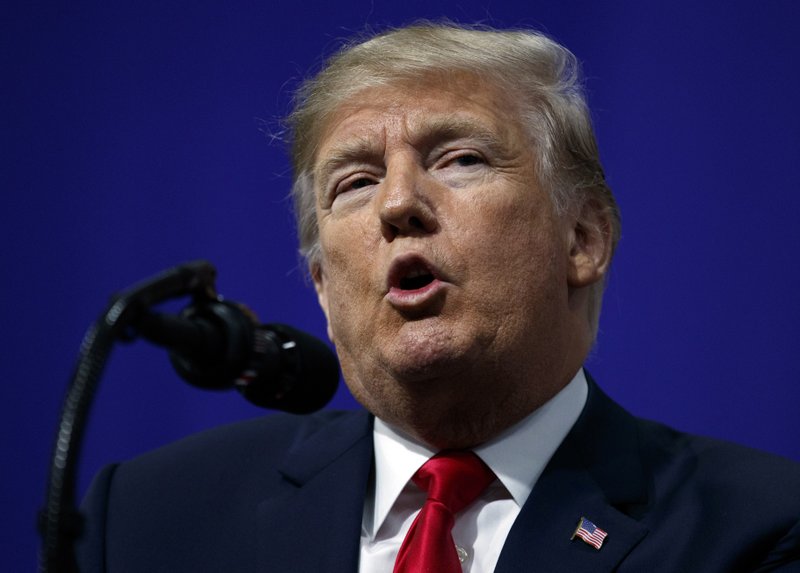
President Donald Trump has directed the U.S. Trade Representative to prepare new tariffs on $200 billion in Chinese imports as the two nations move closer to a potential trade war. The tariffs, which Trump wants set at a 10 percent rate, would be the latest round of punitive measures in an escalating dispute over the large trade imbalance between the two countries. Trump recently ordered tariffs on $50 billion in Chinese goods in retaliation for intellectual property theft. The tariffs were quickly matched by China on U.S. exports, a move that drew the president’s ire. “China apparently has no intention of changing its unfair practices related to the acquisition of American intellectual property and technology,” Trump said in a statement Monday announcing the new action. “Rather than altering those practices, it is now threatening United States companies, workers, and farmers who have done nothing wrong.” Trump added: “These tariffs will go into effect if China refuses to change its practices, and also if it insists on going forward with the new tariffs that it has recently announced.” China’s Commerce Ministry on Tuesday criticized the latest threat of tariffs, saying it was an “act of extreme pressure and blackmail that deviates from the consensus reached by both parties after many negotiations, and is a disappointment to the international community.” “If the U.S. becomes irrational and issues this list, China will have no choice but to adopt strong countermeasures of the same amount and quality,” the ministry statement said. Trump said that if China responds to this fresh round of tariffs, then he will move to counter “by pursuing additional tariffs on another $200 billion of goods.” It wasn’t immediately clear when the new tariffs could be put in place, as the trade office has yet to identify the Chinese goods to be penalized or conduct a legal review. The first round of penalties announced by both nations is set to take effect July 6. The intellectual property sanctions were the latest in a spate of protectionist measures unveiled by Trump in recent months that included tariffs on steel and aluminum imports to the U.S. and a tough rhetoric on trade negotiations from North America to Asia. The escalation in the dispute with China may also serve as a warning to other trading partners with whom Trump has been feuding, including Canada and the European Union. The move quickly drew praise from former Trump senior adviser Steve Bannon, who told The Associated Press: “President Trump told China and the world tonight that America will not back down when it comes to economic aggression.” But Wall Street has viewed the escalating trade tensions with wariness, fearful they could strangle the economic growth achieved during Trump’s watch. Gary Cohn, Trump’s former top economic adviser, said last week that a “tariff battle” could result in price inflation and consumer debt — “historic ingredients for an economic slowdown.” Trump’s comments came hours after the top U.S. diplomat accused China of engaging in “predatory economics 101” and an “unprecedented level of larceny” of intellectual property. Secretary of State Mike Pompeo made the remarks at the Detroit Economic Club as global markets reacted to trade tensions between the U.S. and China. He said China’s recent claims of “openness and globalization” are “a joke.” He added that China is a “predatory economic government” that is “long overdue in being tackled,” matters that include IP theft and Chinese steel and aluminum flooding the U.S. market. “Everyone knows … China is the main perpetrator,” he said. “It’s an unprecedented level of larceny.” “Just ask yourself: Would China have allowed America to do to it what China has done to America?” he said later. “This is predatory economics 101.” Asked to comment on Pompeo’s remarks, the Chinese foreign ministry in Beijing said in a regular briefing with reporters that the U.S. had lost credibility as a free trader. “We don’t want a trade war, but we’re not afraid of a trade war,” ministry spokesman Geng Shuang said. Pompeo raised the trade issue directly with China last week, when he met in Beijing with President Xi Jinping and others. “I reminded him that’s not fair competition,” Pompeo said. Trump had announced a 25 percent tariff on up to $50 billion in Chinese imports. China is retaliating by raising import duties on $34 billion worth of American goods, including soybeans, electric cars and whiskey. Trump also has slapped tariffs on steel and aluminum imports from Canada, Mexico and European allies. Pompeo on Monday described U.S. actions as “economic diplomacy,” which, when done right, strengthens national security and international alliances, he added. “We use American power, economic might and influence as a tool of economic policy,” he said. “We do our best to call out unfair economic behaviors as well.” In a statement, Trump says he has an “excellent relationship” with Xi, “but the United States will no longer be taken advantage of on trade by China and other countries in the world.” Republished with the permission of the Associated Press.
U.S. allies to fight Donald Trump’s tariffs plan, warn of trade war
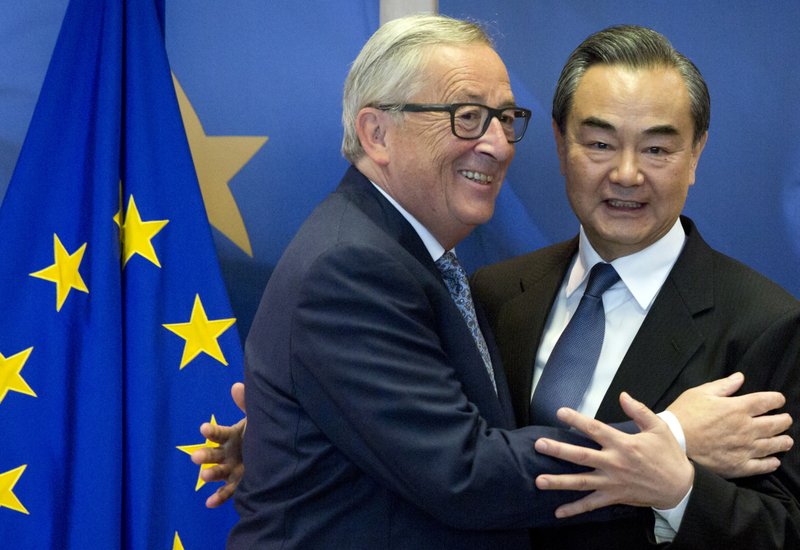
Countries around the world fought back Friday against President Donald Trump’s decision to slap tariffs on steel and aluminum imports, announcing retaliatory countermeasures and warning that the U.S. plan will hurt U.S. consumers. French President Emmanuel Macron said in a statement Friday that he told Trump in a phone call that the new U.S. tariffs on European, Mexican and Canadian goods are illegal and a “mistake.” Macron pledged the riposte would be “firm” and “proportionate” and in line with World Trade Organization rules. Germany’s Volkswagen, Europe’s largest automaker, warned that the decision could start a trade war that no side would win. The European Union and China said they will deepen ties on trade and investment as a result. “This is stupid. It’s counterproductive,” former British trade minister Francis Maude told the BBC. “Any government that embarks on a protectionist path inflicts the most damage on itself,” he added. Macron warned that “economic nationalism leads to war. This is exactly what happened in the 1930s.” Trump’s move makes good on a his campaign promise to crack down on trading partners that he claims exploit poorly negotiated trade agreements to run up big trade surpluses with the United States. Commerce Secretary Wilbur Ross says the tariffs — 25 percent on imported steel, 10 percent on aluminum from Canada, Mexico and the European Union — take effect Friday. The import duties threaten to drive up prices for American consumers and companies and are likely to heighten uncertainty for businesses and investors around the globe. Stock prices slumped amid fears of a trade war, with the Dow Jones industrial average falling nearly 252 points, or 1 percent, to 24,415.84. Mexico complained that the tariffs will “distort international trade” and said it will penalize U.S. imports including pork, apples, grapes, cheeses and flat steel. In Canada, Prime Minister Justin Trudeau said Thursday that the tariffs were “totally unacceptable.” Canada announced plans to slap tariffs on $12.8 billion worth of U.S. products, ranging from steel to yogurt and toilet paper. “Canada is a secure supplier of aluminum and steel to the U.S. defense industry, putting aluminum in American planes and steel in American tanks,” Trudeau said. “That Canada could be considered a national security threat to the United States is inconceivable.” Trump had originally imposed the tariffs in March, saying a reliance on imported metals threatened national security. But he exempted Canada, Mexico and the European Union to buy time for negotiations — a reprieve that expired at midnight Thursday. Other countries, including Japan, America’s closest ally in Asia, are already paying the tariffs. “This is protectionism, pure and simple,” said Jean-Claude Juncker, president of the European Commission. The EU earlier threatened to counterpunch by targeting U.S. products, including Kentucky bourbon, blue jeans and motorcycles. David O’Sullivan, the EU’s ambassador in Washington, said the retaliation will probably be announced in late June. Trump had campaigned for president on a promise to crack down on trading partners that he said exploited poorly negotiated trade agreements to run up big trade surpluses with the U.S. The U.S. tariffs coincide with — and could complicate — the Trump administration’s separate fight over Beijing’s strong-arm tactics to overtake U.S. technological supremacy. Ross is leaving Friday for Beijing for talks aimed at preventing a trade war with China. The world’s two biggest economies have threatened to impose tariffs on up to $200 billion worth of each other’s products. The steel and aluminum tariffs could also complicate the administration’s efforts to renegotiate the North American Free Trade Agreement with Canada and Mexico, a pact that Trump has condemned as a job-killing “disaster.” The White House released a statement from Trump Thursday night saying of NAFTA, “Earlier today, this message was conveyed to Prime Minister Justin Trudeau of Canada: The United State (sic) will agree to a fair deal, or there will be no deal at all.” Trump had offered the two U.S. neighbors a permanent exemption from the steel and aluminum tariffs if they agreed to U.S. demands on NAFTA. But the NAFTA talks stalled. Ross said there was “no longer a very precise date when they may be concluded,” and that as a result, Canada and Mexico were added to the list of countries hit with tariffs. Likewise, the Trump trade team sought to use the tariff threat to pressure Europe into reducing barriers to U.S. products. But the two sides could not reach an agreement. The import duties will give a boost to American makers of steel and aluminum by making foreign metals more expensive. But companies in the U.S. that use imported steel will face higher costs. And the tariffs will allow domestic steel and aluminum producers to raise prices, squeezing companies — from automakers to can producers — that buy those metals. House Speaker Paul Ryan and several leading Republicans in Congress were critical of the administration’s tariff action. Ryan said there are better ways to help American workers and consumers and that he plans to work with Trump on “those better options.” Republished with the permission of the Associated Press.
U.S. to push steel, aluminum tariffs on E.U., Canada and Mexico
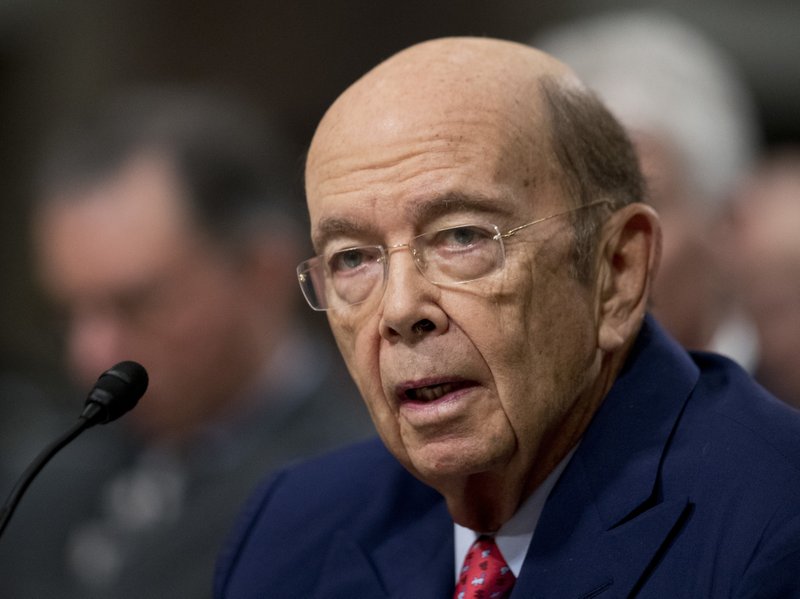
The Trump administration announced Thursday it will impose tariffs on steel and aluminum imports from Europe, Mexico and Canada after failing to win concessions from the American allies. The decision could provoke retaliatory penalties and exacerbate trans-Atlantic and North American trade tensions. Commerce Secretary Wilbur Ross said the tariffs would be 25 percent on steel and 10 percent on aluminum as the administration followed through on the penalties after earlier granting exemptions to buy time for negotiations. Ross told reporters that talks with Canada and Mexico over revising the North American Free Trade Agreement were “taking longer than we had hoped.” Talks with Europe had “made some progress” but not enough for additional exemptions, he said in a conference call from Paris. “We continue to be quite willing and indeed eager to have further discussions,” Ross said. He said he planned to travel to China on Friday for trade talks between the world’s two biggest economies. European officials had braced for the tariffs and the EU has threatened to retaliate against U.S. orange juice, peanut butter and other goods in return. In terms of the NAFTA talks, the tariffs could hinder the negotiations among the North American neighbors. Fears of a global trade war are already weighing on investor confidence and could hinder the global economic upturn. European officials argue that tit-for-tat tariffs will hurt growth on both sides of the Atlantic. Republished with the permission of the Associated Press.
Paige Boshell, Birmingham privacy lawyer: How digital privacy laws in the EU made their way to your inbox

A new European Union privacy regulation is resulting in a flood of e-mails to US residents. This bombardment has been confusing and annoying but may have value. The General Data Privacy Regulation or GDPR is the most comprehensive data privacy law in the world. Among other requirements, businesses that process personal data of EU residents or target EU residents via marketing and/or websites must: Update privacy policies to notify consumers of much greater rights with respect to their personal data, such as the right to object or revoke consent to processing and the right to receive a copy of all personal data maintained or used by the business. Have a legitimate business purpose to use personal data or obtain the consumer’s consent to do so. These requirements do not apply directly to US residents. Some large companies, such as Google, Apple, and Facebook, are offering certain GDPR protections to US residents. These decisions are due in part to consumer backlash against recent data breach and privacy leak scandals and may relate to systemwide changes implemented by worldwide companies. Other companies may be less sophisticated and may be sending e-mails to all consumers out of an abundance of caution. These e-mails are generally intended to: Notify you of changes in privacy policies; and/or Obtain your consent to continue e-mail marketing to you. As a result of these blanketing efforts, many US residents are hearing from companies and websites with whom they may not have done business or have not done business for years. The impulse is to delete these e-mails. The effect of deleting the e-mails should be to free you from continuing to receive e-mail marketing from these companies. But the e-mails have an additional significance: these companies have your personal information and are using it. It may be worth the exercise to look at these revised privacy policies to find out how your information is being used-and shared- and to opt out of such use and sharing as appropriate. Further, if the sender is offering you certain GDPR protections that may not otherwise be available to you, it may be wise to find out what your rights are. Also important: these companies may disclose how they are using your personal data to target behavioral advertising to you and may offer you the ability to opt out of such use and advertising. If you keep seeing ads on Facebook for shoes that you put in your Amazon cart, or any ads across websites, your online activity may be being tracked and used to market directly to you. Although intended to ensure compliance with GDPR, this e-mail overload may actually violate the GDPR when it applies. Arguably, you have to have consent to send the e-mail requesting consent. Moreover, if the sender is not required to get your consent but sends you an e-mail requesting consent, the language of the e-mail may serve to limit the sender’s ability to continue e-mail marketing to you, even if GDPR does not apply. At the end of the day, it is clear that both senders and recipients are confused by the purpose of the GDPR e-mails. At the very least, they are confusing to US residents. But they may offer you some benefits that may be worth wading through the e-mails and related privacy policies to see how your personal data is used and what your rights are with respect to your personal data. ••• Paige Boshell is a cyber and privacy attorney and owner of Privacy Counsel LLC. She is a Fellow of Information Privacy and ISO-certified as an International Association of Privacy Professional CIPP/US (United States law), CIPP/E (European law), and CIPM (privacy management). She is a Best Lawyers attorney. You may find Privacy Counsel LLC at privacycounselllc.com or on Twitter @PrivacyCoLLC and Paige Boshell on LinkedIn.
Barack Obama urges European leaders to work with Donald Trump
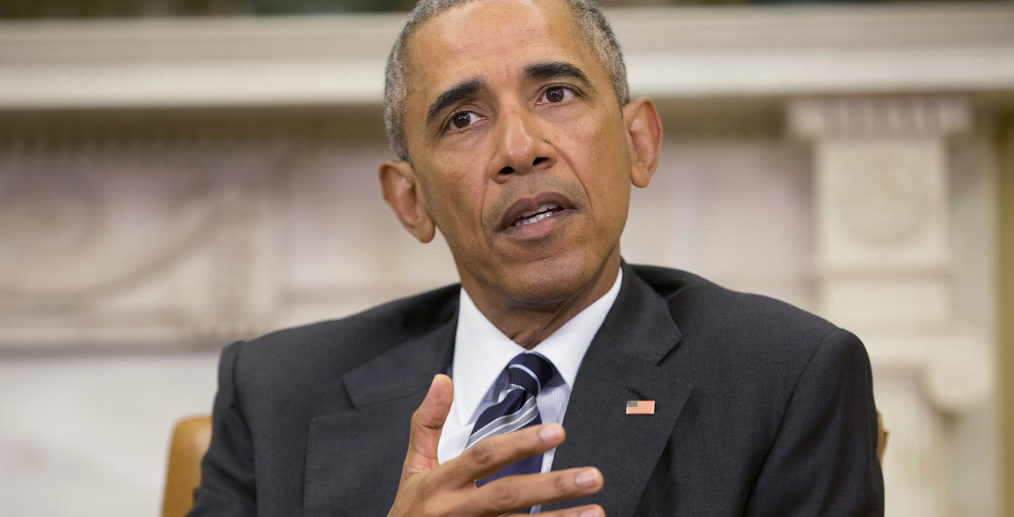
President Barack Obama used a meeting with key European leaders Friday to urge them to work with the incoming administration of President-elect Donald Trump and to discuss steps necessary to resolve the conflicts in Syria and eastern Ukraine, the White House said. Obama’s meeting with the leaders of Germany, Britain, France, Italy and Spain was likely his last in such a setting before he leaves office. The session expands on lengthy talks he held the day before with German Chancellor Angela Merkel. Obama didn’t speak with reporters before departing for Peru on Air Force One. The White House said Obama thanked his counterparts for their cooperation during his two terms in office. He urged them to work on common challenges with a Trump administration on the “basis of the core values that define the United States and Europe as open democracies.” Since Obama’s arrival on Wednesday on his sixth and last trip to Germany as president, he and Merkel have focused several meetings on issues of globalization and trans-Atlantic cooperation. The talks come largely in the context of what the election of Trump will mean to efforts to seek peace in Ukraine and Syria, the strength of the NATO alliance, trade agreements, efforts to fight climate change, and other pressing matters. The White House said in a summary of the meeting that the leaders expressed grave concern about the humanitarian situation in Aleppo. They agreed that increased attacks by the Syrian regime and its supporters, including Russia and Iran, should be immediately halted. They also are calling for humanitarian access to the city to be restored. On Ukraine, the White House said the leaders agreed that sanctions against Russia must remain in place until it meets its commitments to resolving the conflict. Obama also briefed his counterparts on the progress made in Iraq in liberating Mosul from Islamic State militants. The White House said the leaders agreed on the need for stability after the city is liberated. Obama also encouraged leaders to continue efforts to expand information sharing throughout the European Union to help disrupt terror attacks. At a news conference with Obama on Thursday, Merkel diplomatically said she was approaching the incoming Trump administration “with an open mind.” Around the world, many are looking to Merkel – one of the longest serving leaders of a major world power, leader of Europe’s largest economy and one of the biggest U.S. trade partners with the U.S. – for leadership as Obama leaves office. Obama seemed to underscore that reality as he effusively thanked Merkel for her “deep friendship.” He said he couldn’t “ask for a steadier or more reliable partner on the world stage,” while adding that if she chooses to run again for a fourth term next year, he’d vote for her – if he could. Joining the two leaders Friday were the heads of countries at the center of many of the European Union’s coming challenges. British Prime Minister Theresa May is preparing her country for negotiations to leave the trade bloc. Spain’s Prime Minister Mariano Rajoy faces economic woes in his country that have contributed to financial instability in the EU. Italian Prime Minister Matteo Renzi‘s already shaky economy has been rocked by tens of thousands of refugees. And French President Francois Hollande’s socialist government faces a major challenge from the far-right in elections next year. Trump has applauded the British decision to exit the EU, or “Brexit,” and has had meetings with Nigel Farage, leader of the U.K. Independence Party and a key player in the British decision to leave. For his part, Obama said Thursday his hope was that the Brexit negotiations be “conducted in a smooth and orderly and transparent fashion and preserve as closely as possible the economic and political and security relationships between the UK and EU.” Still, Obama noted that he considered the EU “one of the world’s great political and economic achievements.” Republished with permission of The Associated Press.


